There are lots of easy things that you can do to help keep the air cleaner in your home for you and your family.

Keep your kitchen smoke free
When you are cooking, try to keep lids on pots whenever you can. This will reduce the amount of energy needed to cook and reduce the amount of pollution from your hob. It will also reduce the amount of moisture getting into the air, which can help to avoid mould.
When you can, open your windows or use extractor fans when you are cooking to keep pollution levels lower, especially if you have burned the toast!
Throughout your house, avoid smoking, vaping or burning candles.

Regularly service your boilers
Make sure your boiler is serviced each year to help keep it burning fuel cleanly. This should be carried out by a professional Gas Safe engineer.
This will reduce pollution being emitted from the boiler flu and prevent Carbon Monoxide from being created and building up inside your house. It will also make sure that your boiler isn’t wasting fuel (and money).

Check the labels on products
Take care when using cleaning products, aerosols, household sprays, paints and other consumer products. Always read product labels and follow the manufacturer’s instructions and recommended quantities for use. If you have to use these products indoors consider ways you could improve ventilation – such as opening the window or doors. When possible try to use low emission products (sometimes labelled low VOC) and consider storing them in a shed or garage.
When buying new items for your home such as furniture, fittings and flooring look for low emitting products. Consider asking the supplier for information on emissions and pollutants.

Make the most out of fresh air
Opening windows when you are cooking or cleaning can be a very good way to stop air pollution building up inside your house. It allows fresh air in and stops the concentration of pollution from getting too high.
Sometimes, if your home is near a busy road, air pollution from traffic can get into your house from the outside.
If you are worried about the levels of pollution near your home, think about which windows you open, and try to open those that are furthest away from the roads rather than those that are closest to the roads. Try to close your windows during rush hour when the outdoor air pollution is at its worst.
To help prevent mould use trickle vents (found on some windows) and extractor fans or open the window (if possible and safe). You can help avoid moisture by drying clothes outdoors, repairing water leaks/damage and using extractor fans or opening windows (if possible and safe), when bathing and showering.

Save energy
Reducing the amount of energy that you use in your home will also help with air pollution, close to home and for the country as a whole.
If you insulate your home well, you can reduce the amount of energy that goes into keeping it warm. That means you will burn less gas, oil or wood, or use less electricity. And that means you are creating less pollution around your home.
Turning appliances off when you are not using them will also save electricity, and that will reduce the amount of air pollution created at power stations.

Will plants help air pollution at home?
Research that was carried out by NASA in 1989 showed that there are plants which can remove pollution from the air. Different plants were shown to remove different pollutants, and you will often see this research quoted in lots of different places.
However, when you take the plants out of the experimental conditions this study was carried out in, and put the plants in a real home, the change they make is very small. Plants can also attract dust and cause mould, so make sure to look after them well.

Measures to reduce exposure to allergens
People with respiratory allergies (such as asthma and rhinitis) will benefit if steps are taken to reduce their exposure to allergens, such as house dust mites, mould and pets. Measures that can help include:
• reducing dust and dampness in the home
• regularly cleaning items which collect dust such as soft toys
• vacuuming regularly
• if you’re renovating or moving to a new house try to replace carpets with hard flooring
• washing bedding and covers (at 60C every two weeks), or using allergen-impermeable covers
• avoid exposure to furry pets if possible or vacuum regularly if exposed to pet hair at home
If you are concerned about your child’s health always contact your GP.
Avoid smoking inside your home, for more information on the risks of tobacco smoke visit, see the NHS pages.
Make sure your boiler is serviced each year
Use fragrance free cleaning products
-
RCP, every breath we take: the lifelong impact of air pollution, Feb 2016
-
Volatile emissions from common consumer products, March 2015
Avoid aerosols and air fresheners
-
Ten questions concerning air fresheners and indoor built environments
-
Volatile emissions from common consumer products, March 2015
Choose low VOC paints
Open windows or use extractor fans when cooking
Open windows when using cleaning products
Shut windows during rush hour
Choose furniture without MDF
Impact of indoor plants on air pollution



